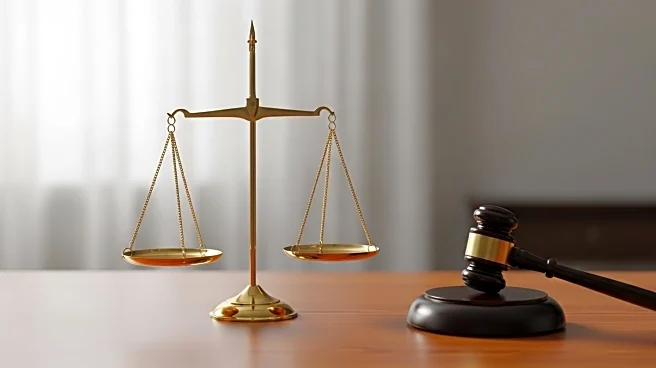What is the story about?
What's Happening?
Deputy Attorney General Todd Blanche has instructed a senior U.S. Justice Department official to cease an inquiry into a retired FBI agent's involvement in a defamation lawsuit against Alex Jones. The lawsuit pertains to Jones' conspiracy theories regarding the Sandy Hook Elementary School shooting. Ed Martin Jr., head of the Justice Department's 'weaponization working group,' initially requested information about former FBI agent William Aldenberg from the Sandy Hook families' lawyer. This request led to frustrations within the department, prompting Blanche to direct Martin to withdraw the letter. The Sandy Hook families' lawyer, Christopher Mattei, confirmed receiving a new letter from Martin stating there was no investigation of Aldenberg and withdrawing the request for information.
Why It's Important?
The withdrawal of the inquiry is significant as it highlights the ongoing legal and ethical battles surrounding conspiracy theories and their impact on victims' families. The Sandy Hook lawsuit resulted in a $1.4 billion judgment against Alex Jones for defamation and emotional distress. This development underscores the Justice Department's stance on not pursuing actions that could be perceived as harassment against those involved in the lawsuit. It also reflects the broader societal and legal challenges in addressing misinformation and protecting individuals from baseless claims.
What's Next?
The decision to drop the inquiry may lead to further scrutiny of the Justice Department's actions and its approach to handling cases involving high-profile conspiracy theories. Stakeholders, including legal experts and advocacy groups, may push for clearer guidelines on how such cases are managed to prevent misuse of authority. Additionally, the Sandy Hook families and their legal representatives may continue to seek justice and accountability for the harm caused by conspiracy theories.
Beyond the Headlines
This case highlights the ethical and legal dimensions of using government resources in litigation involving conspiracy theories. It raises questions about the balance between free speech and the protection of individuals from harmful misinformation. The long-term implications may include increased advocacy for stronger legal frameworks to address defamation and misinformation, particularly in cases involving public figures and tragic events.















